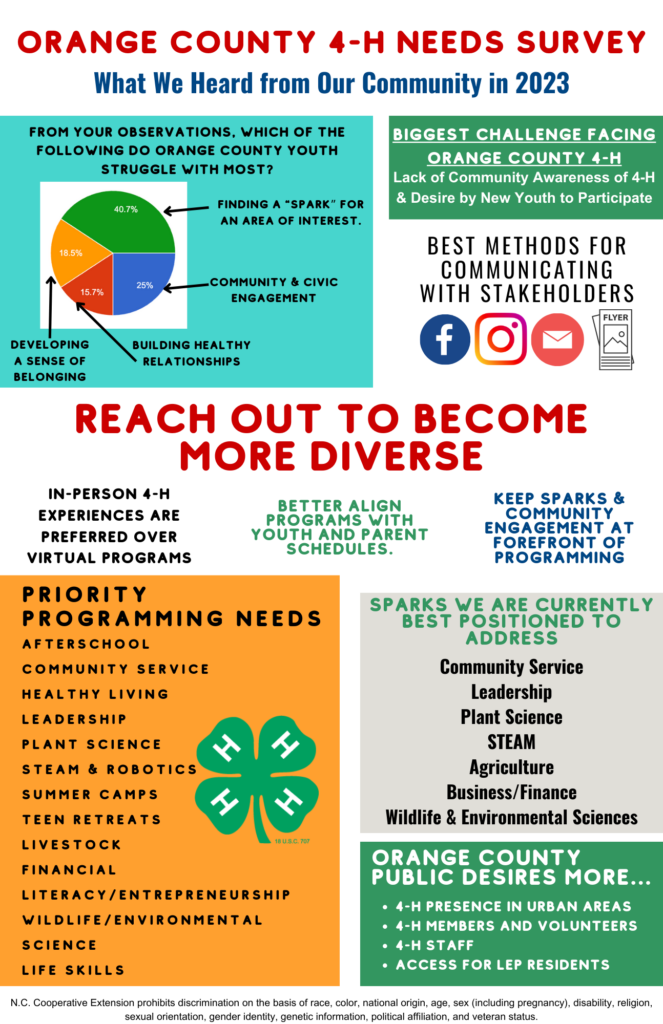Orange County Releases Insights From 4-H Needs Survey
go.ncsu.edu/readext?977864
en Español / em Português
El inglés es el idioma de control de esta página. En la medida en que haya algún conflicto entre la traducción al inglés y la traducción, el inglés prevalece.
Al hacer clic en el enlace de traducción se activa un servicio de traducción gratuito para convertir la página al español. Al igual que con cualquier traducción por Internet, la conversión no es sensible al contexto y puede que no traduzca el texto en su significado original. NC State Extension no garantiza la exactitud del texto traducido. Por favor, tenga en cuenta que algunas aplicaciones y/o servicios pueden no funcionar como se espera cuando se traducen.
Português
Inglês é o idioma de controle desta página. Na medida que haja algum conflito entre o texto original em Inglês e a tradução, o Inglês prevalece.
Ao clicar no link de tradução, um serviço gratuito de tradução será ativado para converter a página para o Português. Como em qualquer tradução pela internet, a conversão não é sensivel ao contexto e pode não ocorrer a tradução para o significado orginal. O serviço de Extensão da Carolina do Norte (NC State Extension) não garante a exatidão do texto traduzido. Por favor, observe que algumas funções ou serviços podem não funcionar como esperado após a tradução.
English
English is the controlling language of this page. To the extent there is any conflict between the English text and the translation, English controls.
Clicking on the translation link activates a free translation service to convert the page to Spanish. As with any Internet translation, the conversion is not context-sensitive and may not translate the text to its original meaning. NC State Extension does not guarantee the accuracy of the translated text. Please note that some applications and/or services may not function as expected when translated.
Collapse ▲Orange County 4-H conducted an online needs survey from July to November 2023 to assess the needs of county youth and families for youth development programming. 108 unique responders representing farm, rural communities, towns, suburbs, and central cities provided feedback. The largest segment of responders (40.7%) identified as parents or guardians. The second largest group (15.7%) was Educators/School Employees. 10.2% of responders were K-12 students (13.9%). The survey also received responses from 4-H volunteers, county government staff, and non-profits.
The infographic below summarizes the major insights from the data. Overall, responses reinforce the relevancy of the 4-H Youth Thriving Model. This information will drive 4-H programs for the next 3-5 years in Orange County and help staff and volunteers to better focus on the needs of today’s youth through afterschool, summer camps, 4-H clubs, and special interest programs.
The mission of NC State Extension is to “extend research-based knowledge to all North Carolinians, helping them transform science into everyday solutions that improve their lives and grow our state.”
If you have any questions, contact County Extension Director and 4-H Agent Jonathon Smith at jonathon_smith@ncsu.edu or 919-245-2057.





